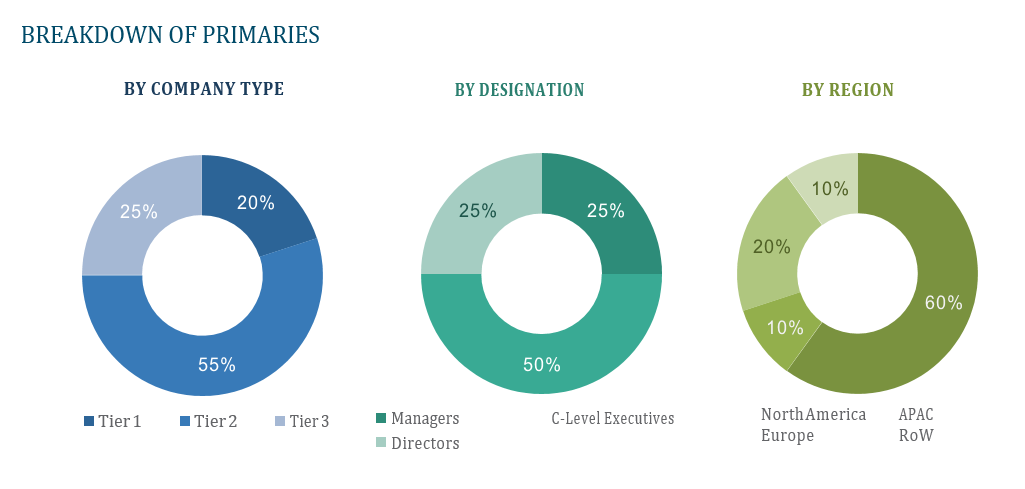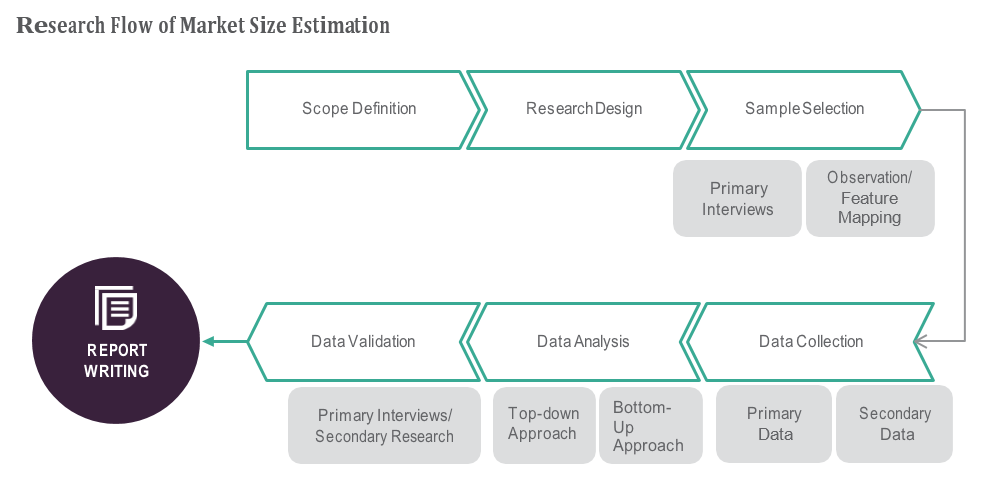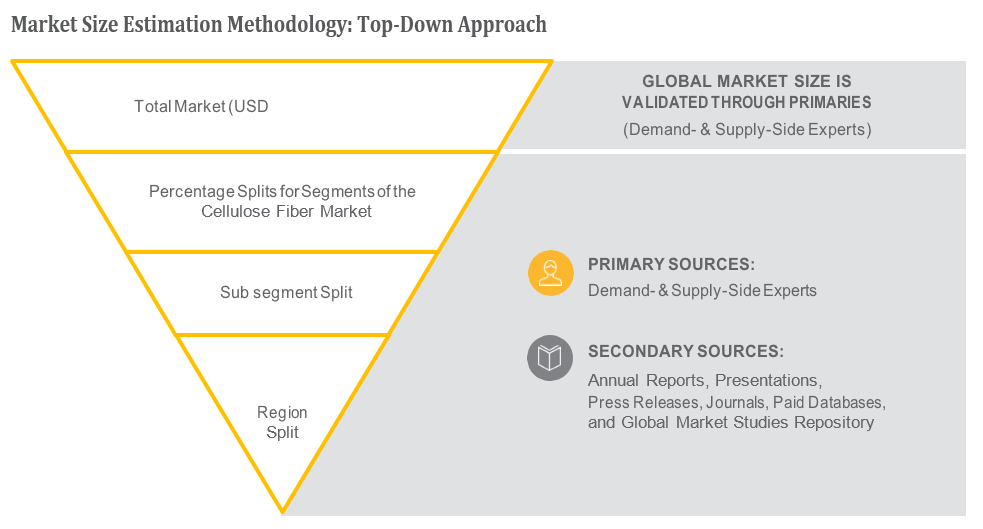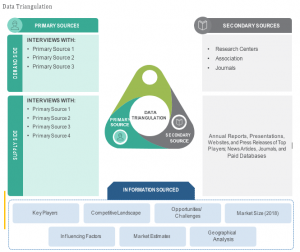OVERVIEW
The Multi-Factor Authentication Market is currently valued at USD 15.2 billion in 2024 and will be growing at a CAGR of 18% over the forecast period to reach an estimated USD 34.8 billion in revenue in 2029. The multi-factor authentication (MFA) market is a rapidly growing sector within cybersecurity, driven by the escalating need for robust identity verification measures. MFA systems require users to authenticate their identity through multiple methods, typically combining something they know (like a password), something they have (such as a smartphone or hardware token), and something they are (biometric data like fingerprints or facial recognition). This layered approach significantly bolsters security, making it more challenging for unauthorized individuals to gain access to sensitive information or systems. With the proliferation of online services and the increasing sophistication of cyber threats, organizations across various industries are embracing MFA solutions to safeguard their digital assets and protect against data breaches. The market encompasses a diverse range of technologies and solutions, including hardware tokens, software-based authentication platforms, biometric recognition systems, and cloud-based authentication services.
The multi-factor authentication (MFA) market is being propelled by several key drivers. Stringent regulatory requirements, such as GDPR and PCI DSS, are compelling organizations to adopt robust security measures to protect sensitive data and ensure compliance. Additionally, the escalating frequency and sophistication of cyber threats, including phishing attacks and credential theft, are driving the demand for stronger authentication methods to thwart unauthorized access. The proliferation of remote work models, accelerated by events like the COVID-19 pandemic, has further underscored the importance of secure access to corporate networks and applications from anywhere, anytime. Moreover, the increasing adoption of cloud services and mobile devices is driving the need for flexible and scalable MFA solutions that can adapt to dynamic IT environments. As businesses prioritize cybersecurity and strive to enhance user experience, the MFA market is poised for sustained growth, with vendors innovating to deliver solutions that offer both robust security and seamless authentication experiences.
Table of Content
Market Dynamics
Drivers:
The multi-factor authentication (MFA) market is being propelled by several key drivers. Stringent regulatory requirements, such as GDPR and PCI DSS, are compelling organizations to adopt robust security measures to protect sensitive data and ensure compliance. Additionally, the escalating frequency and sophistication of cyber threats, including phishing attacks and credential theft, are driving the demand for stronger authentication methods to thwart unauthorized access. The proliferation of remote work models, accelerated by events like the COVID-19 pandemic, has further underscored the importance of secure access to corporate networks and applications from anywhere, anytime. Moreover, the increasing adoption of cloud services and mobile devices is driving the need for flexible and scalable MFA solutions that can adapt to dynamic IT environments. As businesses prioritize cybersecurity and strive to enhance user experience, the MFA market is poised for sustained growth, with vendors innovating to deliver solutions that offer both robust security and seamless authentication experiences.
Key Offerings:
In the multi-factor authentication (MFA) market, vendors offer a diverse range of solutions and services to meet the evolving security needs of organizations. Key offerings typically include hardware tokens, software-based authentication platforms, biometric recognition systems, and cloud-based authentication services. Hardware tokens provide physical devices, such as key fobs or smart cards, that generate one-time passcodes for secure access. Software-based authentication platforms offer flexible and scalable solutions that can be deployed on-premises or in the cloud, supporting various authentication methods and integration with existing IT infrastructure. Biometric recognition systems leverage physiological or behavioral characteristics, such as fingerprints or facial features, for identity verification, offering enhanced security and user convenience. Cloud-based authentication services deliver centralized authentication capabilities with features like single sign-on (SSO), adaptive authentication, and multi-protocol support, catering to organizations seeking agility and scalability. With a focus on enhancing security, usability, and compliance, vendors continue to innovate and expand their offerings to address emerging threats and evolving customer requirements in the dynamic landscape of cybersecurity.
Restraints :
The market for multi-factor authentication (MFA) is expanding quickly, but there are a number of obstacles that prevent it from being widely used and functioning well. The perceived difficulty and inconvenience of putting MFA solutions into practice is a major barrier, especially for end users who could object to extra verification procedures. Moreover, deployment difficulties and compatibility problems may result from interoperability problems that occur when merging MFA systems with old apps and current IT infrastructure. Another limitation is cost, since enterprises may have to pay for software licences, hardware up front, and continuous maintenance, particularly for extensive MFA implementations involving big user populations. Furthermore, due to governmental scrutiny and customer fear, privacy and data protection issues, particularly with biometric authentication systems, can impede adoption. Moreover, the dynamic nature of the threat landscape and the possibility of highly skilled cyberattacks to evade multi-factor authentication protocols highlight the necessity of constant innovation and attentiveness in modifying multi-factor authentication systems to tackle novel threats. To fully utilise multi-factor authentication in protecting digital assets and reducing cyber risks, organisations must balance security requirements with user experience and operational efficiency. This is a difficult balance to make.
Regional Information:
• North America: In North America, the MFA market is driven by stringent regulatory requirements, such as HIPAA and SOX, which mandate robust security measures to protect sensitive data across industries like healthcare and finance. The region benefits from a strong cybersecurity ecosystem with a high level of awareness about the importance of MFA in mitigating cyber threats. Additionally, the widespread adoption of cloud services and the prevalence of remote work models further fuel demand for MFA solutions that offer secure access to corporate resources from anywhere.
• Europe: In Europe, the MFA market is influenced by GDPR compliance requirements, which necessitate enhanced security measures to protect personal data. Organizations in sectors like banking and e-commerce prioritize MFA adoption to bolster customer trust and comply with regulatory mandates. Moreover, the region’s emphasis on privacy and data protection drives demand for biometric authentication solutions, while the growing threat landscape underscores the need for advanced MFA technologies to thwart cyber-attacks.
• Asia-Pacific: The Asia-Pacific region is experiencing rapid growth in the MFA market, propelled by increasing cyber threats and the digital transformation initiatives of organizations across sectors like IT, BFSI, and healthcare. Countries like China, India, and Japan are witnessing significant investments in MFA solutions to combat fraud and secure online transactions. Moreover, the proliferation of mobile devices and the adoption of cloud-based services drive the demand for flexible and user-friendly MFA solutions tailored to the unique requirements of the region’s diverse markets.
Recent Developments:
• In April 2023, Thales launched the SafeNet eToken Fusion series, a new set of USB tokens. With the help of the SafeNet eToken Fusion Series, businesses may use passwordless authentication techniques resistant to phishing attacks, enhancing the security of company resources used on any device.
• In November 2022, Okta launched Okta Customer Identity Cloud, an easy-to-implement and customizable customer identity solution. The Okta Customer Identity Cloud for Consumer Apps helps any organization with advanced security features like Adaptive MFA.
Key Players:
RSA Security LLC, Gemalto, HiD Global Corporation, Duo Security, Okta, Ping Identity Corporation, Auth0, IBM, Microsoft, and OneLogin.
1) What is the projected market value of the Multi-Factor Authentication Market?
– The Multi-Factor Authentication Market is expected to reach an estimated value of USD 34.8 billion in revenue by 2029.
2) What is the estimated CAGR of the Multi-Factor Authentication Market over the 2024 to 2029 forecast period?
– The CAGR is estimated to be 18% for the Multi-Factor Authentication Market over the 2024 to 2029.
3) Who are the key players in the Multi-Factor Authentication Market?
– RSA Security LLC, Gemalto, HiD Global Corporation, Duo Security, Okta, Ping Identity Corporation, Auth0, IBM, Microsoft, and OneLogin.
4)What are the drivers for the Multi-Factor Authentication Market?
– The multi-factor authentication (MFA) market is driven by regulatory requirements, cyber threats, remote work, and the need for flexible solutions. The market is expected to grow due to the need for robust security measures, phishing attacks, and scalable MFA solutions. Vendors are innovating to deliver secure and seamless authentication experiences.
5) What are the restraints and challenges in the Multi-Factor Authentication Market?
– Multi-factor authentication (MFA) faces challenges in its widespread adoption due to perceived complexity, interoperability issues, cost considerations, privacy concerns, and evolving threat landscape. Organizations face upfront investments, ongoing maintenance, and regulatory scrutiny. Balancing security requirements with user experience and operational efficiency is crucial for realizing the full potential of MFA in safeguarding digital assets and mitigating cyber threats.
6) What are the key applications and offerings of the Multi-Factor Authentication Market?
– Multi-factor authentication (MFA) vendors provide various solutions to meet organizational security needs, including hardware tokens, software-based platforms, biometric recognition systems, and cloud-based services. Hardware tokens generate passcodes, software-based platforms offer flexible, scalable solutions, biometric recognition systems use physiological characteristics, and cloud-based services offer centralized capabilities. Vendors continuously innovate to address emerging threats and customer requirements in the cybersecurity landscape.
7) Which region is expected to drive the market for the forecast period?
– North America is expected to have the highest market growth from 2024 to 2029
Why Choose Us?
Insights into Market Trends: Global Market Studies reports provide valuable insights into market trends, including market size, segmentation, growth drivers, and market dynamics. This information helps clients make strategic decisions, such as product development, market positioning, and marketing strategies.
Competitor Analysis: Our reports provide detailed information about competitors, including their market share, product offerings, pricing, and competitive strategies. This data can be used to inform competitive strategies and to identify opportunities for growth and expansion.
Industry Forecasts: Our reports provide industry forecasts, which will inform your business strategies, such as investment decisions, production planning, and workforce planning. These forecasts can help you to prepare for future trends and to take advantage of growth opportunities.
Access to Industry Experts: Our solutions include contributions from industry experts, including analysts, consultants, and subject matter experts. This access to expert insights can be valuable for you to understand the market.
Time and Cost Savings: Our team at Global Market Studies can save you time and reduce the cost of conducting market research by providing comprehensive and up-to-date information in a single report, avoiding the need for additional market research efforts.









